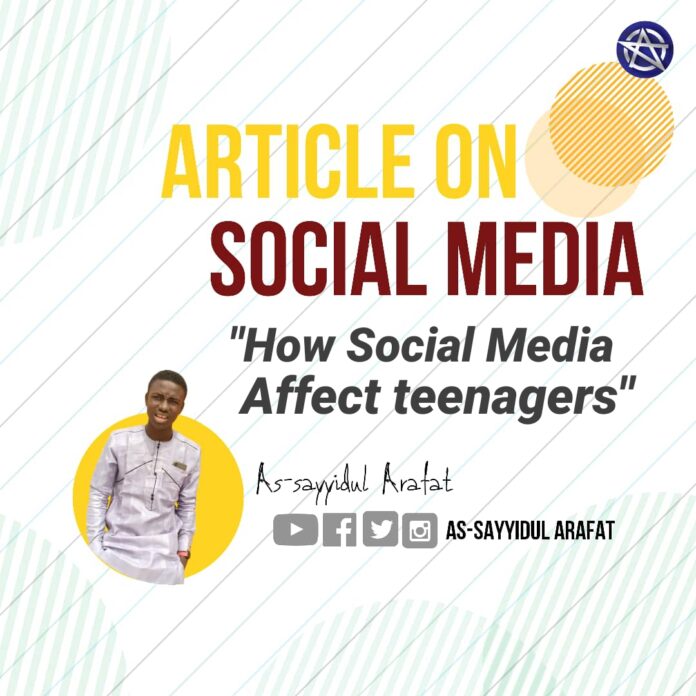How Social Media Affects Teenagers, By As-sayyidul Arafat
INFOMEDIA – Just like every other technological advancement on people’s lives. Social Media has its pros and cons, but in teenagers life it tends to be significant. Social media is a big part of many teens’ lives. A 2018 Pew Research Center Survey of nearly 750, 13- to 17-year-old found that 45% are online almost constantly and 97% use a social media platform, such as YouTube, Facebook, Instagram or Snapchat.
But frequent use of social media among teenagers and young adults has many less positive consequences. These include cyberbullying, negative self-image and body image, social media addiction, and less time spent doing healthy and real-world activities.
As we’ve said Social Media has its Ups and Downs on tenegers’ lives, it also helps them create identity, and the platforms can expose teens to current events, they get to know people all around the world, learn about new things that is not in their environment (cultures, traditions) and they also learn how to make new things like food, Podcasting, YouTube, Photoshop, etc. these are lucrative skills, they maintain and develop supportive relationships.
Teens also use social media for entertainment and self-expression, the controversial question that is frequently asked is does social media make teens more anxious and depressed?
According to Newport Academy, many experts believe that the constant overstimulation of social networking shifts the nervous system into fight-or-flight mode. As a result, this makes disorders such as ADHD (Attention deficit hyperactivity disorder), teen depression, oppositional defiant disorder, and teen anxiety worse.
Read Also:
This is borne out by a large body of research linking teenagers’ use of social media with increased teen depression. These studies show that the frequency of a teen’s use of social media has a clear correlation to their mental health. For example, in a 2018 study, 14- to 17-year-old who used social media seven hours per day were more than twice as likely to have been diagnosed with depression, treated by a mental health professional, or taken medication for a psychological or behavioral issue during the last year.
This was compared to those who used screens only about an hour a day.
Additional surveys of US adolescents show that teen depressive symptoms and suicide rates increased between 2010 and 2015, especially among females. Researchers noted that the increase in social media and overall screen use between those years could account for these changes.
Moreover, these surveys showed that adolescents who spent more time on social media were more likely to report mental health issues.
Meanwhile, teens who spent more time on non-screen activities, such as in-person social interaction, sports, exercise, homework, and print media, were less likely to report these issues.
Teens should uphold the good path of social media, rather than just being online 24/7. Focus on what is important and spend more time doing recreational activity.
As-sayyidul Arafat the author, is a Social Media Marketing Analyst and lifestyle vlogger( https://www.youtube.com/channel/UC1_-_s0wbM1GawQRQizgPYw ). He is passionate on helping businesses grow their brands on Social Media.
The views expressed in this article are the author’s own and do not necessarily reflect the editorial policy of INFOMEDIA



























